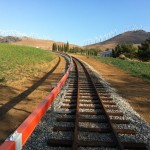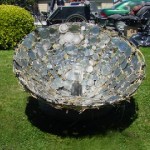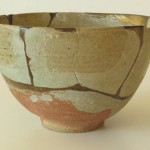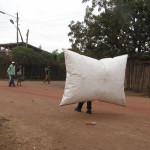- Dissertations on fab labs and maker culture. [Cindy Kohtala] “A list of doctoral dissertations and master’s theses on open design, fab labs, makerspaces, digital fabrication, 3D printing, maker culture, etc.. Contact me to add yours, and sorry if I missed it!”
- Introduction: Alternative Histories in DIY Cultures and Maker Utopias. [Digital Culture & Society] “Activities considered “low-tech”, the non-digital in DIY (Do-It-Yourself) cultures, are often pushed aside in the rush to promote the most photogenic high-tech tools, such as 3D printers, laser cutters and computer numeric-controlled (CNC) routers.”
- Solar Generator Trailer- Electrical System. [Low-tech Lab] “This tutorial presents the sizing and construction of an electrical system for a solar generator (1 kWp or ‘kilowatt peak’) which can be moved by bicycle. This structure was designed to fit on the CHARRETTE, an assisted trailer designed by the Véloma association, whose plans are freely available.”
- Opportunities of living in an urban and low-tech environment. [Low-tech Lab] “Andréane Valot, designer and graduate of ENSCI – Les Ateliers in 2021, shares her assessment of 8 months of experimentation with a low-tech approach to life in an urban environment, in this case applied to her Parisian studio.”
- Rower generator. [Gene’s Green Machine] “I thought it might be a fun challenge to build a rowing machine generator.”
- The Anti-Ownership Ebook Economy. [The Engelberg Center on Innovation Law & Policy] “Something happened when we shifted to digital formats that created a loss of rights for readers. Pulling back the curtain on the evolution of ebooks offers some clarity to how the shift to digital left ownership behind in the analog world.”
- How to generate an Ourzine pdf? [Ourzine] “Ourzines are a way for people to connect with written text without the distractions of digital screens. By refocusing our attention from the unending onslaught of new content to paper, Ourzines give readers the space to choose what they want to engage with and to do so mindfully. No links, no ads, no rabbit holes – nothing but what you have decided to read.”
- Reviving Chromebooks with Ubuntu: Autonomous Servers, Planned Obsolescence, and Permacomputing. [Anarcho Solarpunk] “A tutorial and slight manifesto on reviving end-of-life Chromebooks. How to make them into autonomous servers, and why we need to rethink computing in the age of climate collapse.”
- The buttons on Zenith’s original ‘clicker’ remote were a mechanical marvel. [The Verge] “The Zenith Space Command, one of the first wireless television remotes ever to exist, is a monument to a time before we took the remote for granted. It also just so happened to contain one of the most influential and intriguing buttons in history.”
- Version 2 of my solar-powered, ePaper digital photo frame. [Plotting The Curiosity Vector]
- The myth of neutral tech and the politics of not doing in the attention economy. [Center for Transdisciplinary Gender Studies] “When performance is increasingly monitored, output and achievement glorified, inactivity deemed laziness and laziness deemed undesirable, doing nothing can be a radical act.”
- Clicks of Desire – How the Internet obeys you. [The New Atlantis] “Where once it was occasionally possible to opt out of ‘reality’ (by taking drugs, say), it is now increasingly necessary to think about how to opt in to it.”
- Who Makes Our Smartphones? Four Moments in Their Lifecycle. [The Routledge Handbook of Ecomedia Studies] “We hope we have provided reasons for holding on to smartphones for as long as possible, if for no other reason than to help release some of the pressure on workers laboring across the supply chain.”
- Low-tech et sobriété numérique: une étude d’usages du smartphone. [Université du Québec à Montréal] “Afin d’interroger la sobriété d’une
high-tech, nous nous sommes concentrés sur le smartphone; objet emblématique du quotidien, autour duquel nous avons mené un travail de design. Nous avons ainsi mis au point une pellicule de sobriété numérique, qui permet de flouter l’écran et gêner l’usage du smartphone, créant ainsi une barrière entre l’usager et son objet high-tech. Notre objectif de recherche est d’étudier les effets et la potentielle diminution d’usage quotidien de ce dispositif.”
No Tech Reader #41
August 10, 2023 by Filed Under: No Tech Readers




